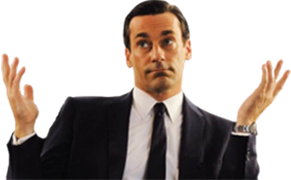 be2ye
be2ye1)
The ideas presented by Nihilism way predate any sort of new modern movement or the advent of the internet. They come way closer to and even sometimes predate the French Revolution (i.e. the 1790's).
The idea that God is dead, or the idea that Truth not exist or isn't worth pursuing has always lingered around humans. But rarely if ever did it gain such traction on an entire civilization as it has rooted in our Western "Democracies" currently.
See Theocracies don't need to mince words about their authoritarian yet unapologetic plight towards God. Even old Kingdoms held this pretense striving towards unity under one or more Gods and their nefarious or benevolent truths. But current Western societies are built upon the Enlightenment doctrine of abandoning the religious realm and simultaneously abandoning the united umbrella of any other dogma except that it 'does not harm anyone' (i.e. is to exhibit a measure of goodness).
Why we have done this in the west might seem obvious at first. We've seen the horrors of the Inquisition and the many Crusades and the inwardly facing church-led wars that singled out and angered the common populace. They had ample reason to no longer trust the Catholic Church as an authority for any political aims of the nation and neither did feudal states or kingdoms draw them any more sympathy. Reform was welcomed at the new dawn on this continent. And so the Revolution swept like a fever and the Napoleonic dynasty only made minor adjustments in this break with tradition. But was that actually why it happened? Was it enough for man to say, we as humans failed to adapt God's laws in the land and therefore abandon all claim on Truth from this point forward except that we negate what we know untrue for certain? Was that truly what the collective conscience wanted for Europe, or what has now become a global epidemic of apathy towards Truth? As long as we be clothed, fed and entertained?From the ideas of liberalism, came secularism. Man liberated itself from God's moral authority and longed for a total divorce from his political grip.
For the first time in perhaps all of human history, man became central in debating, writing and maintaining a doctrine of law without a central figurehead to please. God's laws were demoted in this secular state, to be of little more importance than a historic document from which to pick and choose verses for inspiration or deliberately diverge from. It was man's ideas that would be selected and effected into power, and so called 'liberals' and 'conservatives' while agreeing on this line, only came to differ in how far up the spectrum they would progress these newfound ideas of man.Nothing to worry about so far, right? Well. There is a problem.
Who decides what is right and wrong afterall, if not for those who claim some form of objectivity? If not God then who is that ultimate arbiter of truth? Is it one of the several philosophical streams of thought that can possibly point us in the right direction? Has that ever been found? Is it whatever the majority of humans, a populace agree upon at a single point in time? But what if that consensus changes? Is it better yet, the niche of well researched science that construct a foundation of truth as the basis of well-meaning political laws? Have scientific models and theories ever changed during history? Or is it rather yet better to keep up an archive of constantly monitored data and opinions to which we technologically stack up the objectiveness of our political ideas that yields the objective results we should strive for? Can we expect truth to emerge from a mass consensus or do we leave it to the best and brightest of our societies? Who decides what the right method of assessing said knowledge even is? Do we decentralize that authority in society or give it to a powerful governmental institution? Is our reasoning alone sufficient enough to establish what is false and what is true, do we simply reason our way out of any problems in the world? And if so, do we have ample evidence of this? What if we don't know enough about a topic? What if data changes our perception? What if we change opinions over the course of decades and centuries, does that mean we follow just our whims and ideas of a particular time not knowing if we can ever know for certain? What happens when we empower our most popular ideas? Does that power ever fall in the hands of the wrong people? Don't the wars prove that entire nations can fall to the rethoric of a single man, reasoning out of necessity for the greater good? Will it ever be possible to determine an objective truth for us to adhere to? Questions that have begged answers ever since the silent herd steadily followed a technological and scientific rennaissance out of pre-modernity, but answers that have never been given by our 'coronated' and emboldened elite up until our very own 21st century.This new age has dawned on us and our respective societies with much (embedded) promise of prosperity and progress, and it has definitely met the radically changed landscapes that such progress necessarily inspires in mankind. But with each passing of the decade and century since the Enlightenment we have come only so far in picking up the pieces of derealization that Nihilism has left behind. Has this post-postmodern era truly been the succes we've hoped for? Technology and science have been the sharpest tools in the political shed for proving the effectiveness of our communal existence, but have they not been equally destructive of our human societies, life, older truth traditions and knowledge bases. We can sure do without the terror and the grandstanding of moral authority and proven wrongs of the past but can it be true that we've lost way more than that in the process of ridding ourselves of those great evil ghosts?
Those of us who have joined the scientific, medical and technological workfields will certainly attest to the amount of inspiration they've derived from the progress in those fields to form meaning in their daily lives and to help better the world. And even most outside of it understand this concept. But have these forces been employed in the most ideal and empowering way? Or have they for instance also been used to hamper our collective human progress and our desire for Truth in the face of falsehood. Have they been our only need for inspiration in dire times, our solution to all man-made problems?Is this not an era in which media, governments, corporations have managed to centralize ever more power in the hands of the very few? Despite record world population numbers and the highest standards of living in some countries, unprecedented high life expectancies, the wealth of technological advancements that have enabled most of this and increased us in much efficiency while simultaneously rendering us utterly useless, was this a promise delivered to the masses or moreso the elite? Or was it atleast true that we've finally found ourselves at a convenient juncture in human history where without any moral authority we've still managed to hand over the most amount of pleasure, and the least amount of harm to the majority of people, and that this is good enough, as good as we will ever get as a collective and we should therefore stop any call for action or rethinking?
Disregarding politics for this next point completely.
2)
The truth is ofcourse of upmost importance to me, and to you. Why?
Because we need to know what is true in order to not be endangered by falsehood. To live life, one can choose to be uninformed and making bad decisions until the day they undoubtedly die, but is this the existence you would wish for yourself, for your fellow human being or even for your own kin? Or is it better to be 'well' informed and making the 'right' decisions, in which 'goodness' is that which agrees with your reasoning, heart and emotions to their most capacity?Falsehood as enemy.
Falsehood begets wrong conclusions, falsehood makes it hard for you to trust a party, falsehood keeps you disillusioned, disempowered and frankly easy to manipulate by those who have an incentive to lie to you and ulterior motives.
Not only that, the innocent concept of not knowing something, leaves the door open for exploration and discovery.
The idea of Truth can only further that hunger for more excavation, whereas falsehood will pertinently obstruct your view of reality in every sense of the word. It will cloak in its darkness any roadmap of life that renders it readable, knowable, fun and pure enough to intellectually or emotionally exert yourself over.Why would we then as a society abandon, as stark as we have, all reasons for reasoning about the Truth with eachother and ourselves? Because it conveniences us? Because we simply lack the will to care about higher ideals? Because we lust over the carnal pleasures solely as a measure of good fortune and luck?
I don't think so. I think we've been led by the wrong shepherds. Especially the kind that do not empower us to reason, to look for truths or that tell us, truth is not knowable, not something real, not something worth pursuing. It is those people that profit from our current state of nihilism that will argue (in)directly for the abandon of all movements against its own power structure in favor of convenience, of comfort or even at the threat of war, censorship or death. We are intimidated by this power because we've become so complicit and dulled into a lulling sleep.
Not to become too predictable here, but we do not live enough for the Truth in our everyday lives to look death in the eye. Because we have become ignorant of the Truth of even death itself, do we continue to live on a very self-destructive path. We can all see where a heroin addict's life is ultimately pointing towards, but we can't seem to wake up to what the nihilist is living for.
How else do we overcome something if not by first admitting our problem?
will give this a read soon and share my thoughts!
There is more good in the world than bad
Its just that the really bad is done by people the average person has no control over
@Be2ye (didn’t want quote the massive post)
”Who decides what is right and wrong afterall, if not for those who claim some form of objectivity? If not God then who is that ultimate arbiter of truth? Is it one of the several philosophical streams of thought that can possibly point us in the right direction? Has that ever been found? Is it whatever the majority of humans, a populace agree upon at a single point in time?”
i’ve pointed out this exact issue myself pertaining to morality and ethics on this site and this is probably the easiest way to trigger these sorts of people
 it’s like they cannot comprehend or come to terms with the conclusions and entailments of their worldview, so they immediately jump to undermining yours each time
it’s like they cannot comprehend or come to terms with the conclusions and entailments of their worldview, so they immediately jump to undermining yours each timeit’s largely agreed upon (even by atheists) that void from a divine ground of sorts, any sort of objectivity is tossed out of the window, notably as you had mentioned the whole “God is dead” thingie, Nietzsche himself famously grappled with this sort of thing— something that obviously is objective has to be immutable and something that doesn’t shift and morph with the current flavor of society, culture or whatever the populace feels like at the time.
they’ll default to things like “””logic””” (lol) being the worthy arbiter, or you know, science classically, as if science hasn’t been used historically to justify atrocities and abominations. this is somewhat why i find it really strange when i see these people look down on religious people for “needing a book/God to be a good person” when their morals are predicated nine times out of ten something just as dogmatic as a book, however they don’t take umbrage with it due to its relativistic, loose nature (as if that isn’t some sort of worrisome signifier as to how frail and neutered a moral system of that sort is)
it seems like people inherently think something that isn’t grounded or can change on a dime isn’t a worldview or a belief system, and is instead “open” to new information and parameters to codify new rules, laws, whatever else when the premium on relativism in itself for a system like this to not even fall apart is a form of dogmatism
but like i said, you’ll never get too far pointing this sort of thing out because they’re usually on their corny polemical attack for “being a Christian” or whatever they think you are half the time 🥱
 X7JQ9L2MF4A8Z· edited
X7JQ9L2MF4A8Z· edited@Be2ye (didn’t want quote the massive post)
”Who decides what is right and wrong afterall, if not for those who claim some form of objectivity? If not God then who is that ultimate arbiter of truth? Is it one of the several philosophical streams of thought that can possibly point us in the right direction? Has that ever been found? Is it whatever the majority of humans, a populace agree upon at a single point in time?”
i’ve pointed out this exact issue myself pertaining to morality and ethics on this site and this is probably the easiest way to trigger these sorts of people
 it’s like they cannot comprehend or come to terms with the conclusions and entailments of their worldview, so they immediately jump to undermining yours each time
it’s like they cannot comprehend or come to terms with the conclusions and entailments of their worldview, so they immediately jump to undermining yours each timeit’s largely agreed upon (even by atheists) that void from a divine ground of sorts, any sort of objectivity is tossed out of the window, notably as you had mentioned the whole “God is dead” thingie, Nietzsche himself famously grappled with this sort of thing— something that obviously is objective has to be immutable and something that doesn’t shift and morph with the current flavor of society, culture or whatever the populace feels like at the time.
they’ll default to things like “””logic””” (lol) being the worthy arbiter, or you know, science classically, as if science hasn’t been used historically to justify atrocities and abominations. this is somewhat why i find it really strange when i see these people look down on religious people for “needing a book/God to be a good person” when their morals are predicated nine times out of ten something just as dogmatic as a book, however they don’t take umbrage with it due to its relativistic, loose nature (as if that isn’t some sort of worrisome signifier as to how frail and neutered a moral system of that sort is)
it seems like people inherently think something that isn’t grounded or can change on a dime isn’t a worldview or a belief system, and is instead “open” to new information and parameters to codify new rules, laws, whatever else when the premium on relativism in itself for a system like this to not even fall apart is a form of dogmatism
but like i said, you’ll never get too far pointing this sort of thing out because they’re usually on their corny polemical attack for “being a Christian” or whatever they think you are half the time 🥱
This is why i steer clear of religious arguments and reason with people until it becomes too glaringly obvious not to agree
I don't want to claim truth, i want to objectively establish it, the truth can stand on its own to any observer but we should be earnest and in search for it atleast.
If we just give up because we give eachother labels then what is the point of even being on a forum? You just want likeminded peope to confirm your thinking.
That's why i keep repeating the question, what is the truth, why give up on it if it is out there to be found?


